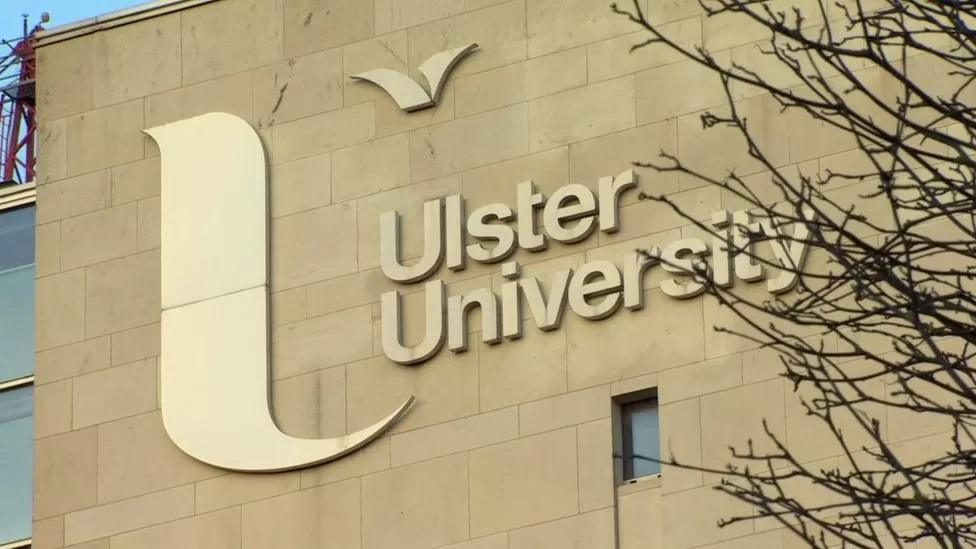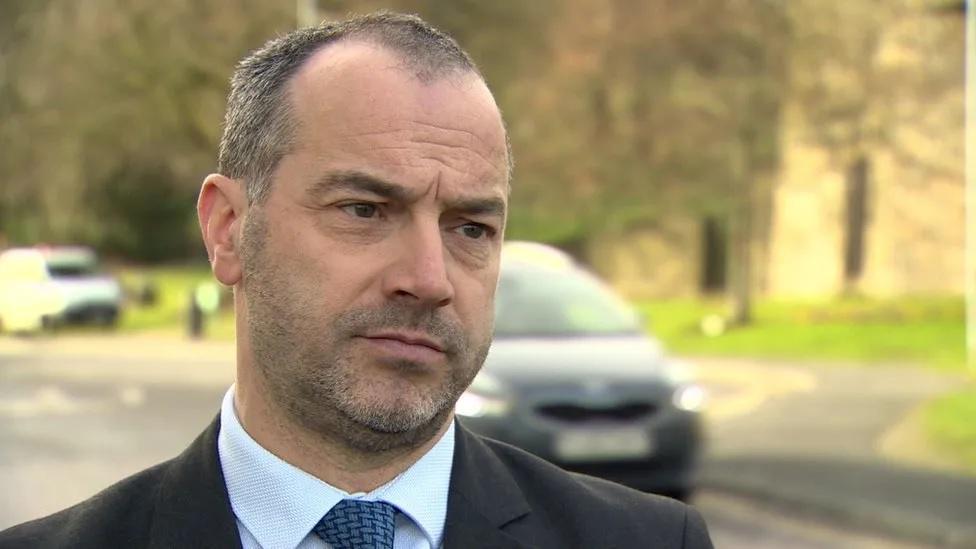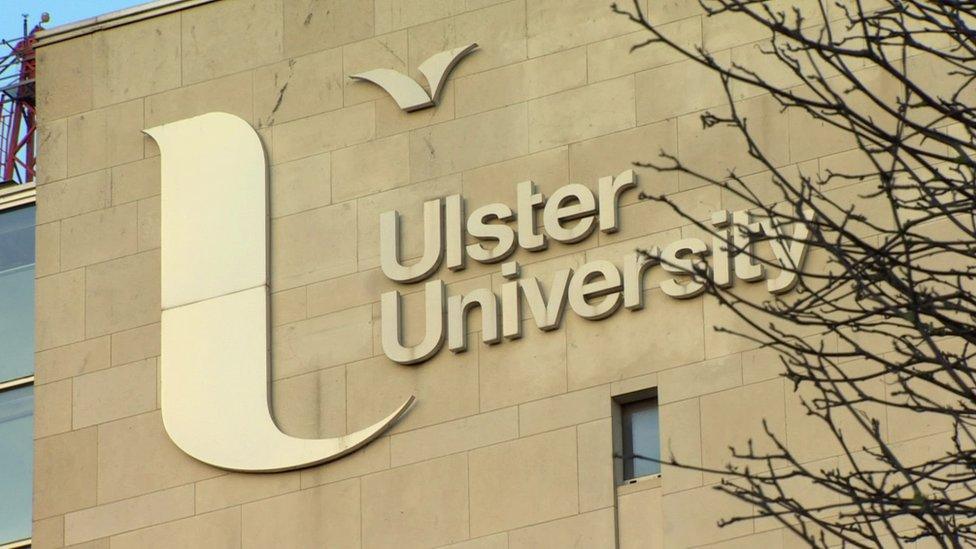Ulster University: LGBT Pride 'problematic' for Qatar campus
- Published

A senior Ulster University academic has said sending information on LGBT Pride to students at its Qatar campus is "highly problematic".
Prof Odette Hutchinson said that while the university should celebrate Pride, it needs to be "cognisant of different cultural expectations".
Human rights campaigners urged the university not to have "double standards" on freedom of expression.
Ulster University said it is committed to "equality, diversity and inclusion".
The university established a partnership in Qatar with City University College in 2020 to offer a range of degree courses to students in its capital city Doha.
The link-up has faced criticism due to the Middle Eastern country's record on human rights. Homosexual acts are illegal in Qatar because they are considered immoral under Islamic Sharia law.
Prof Hutchinson, Ulster University's pro vice chancellor on academic quality and the student experience, made her remarks during a committee meeting in February.
A pro vice chancellor is a senior role which is effectively a deputy head of a university.
The committee was discussing the idea of tailoring communications to staff and students to be more specific to each campus.
'Different cultural norms'
A transcript of the meeting, seen by BBC News NI, recorded that Prof Hutchinson said Doha has "some very different cultural norms and expectations" and some emails sent to all staff and students had caused "political and cultural sensitivity".
Prof Hutchinson said that "sending things that relate to Pride, for example, to Doha as you can probably imagine is highly problematic now".
She said that while the university should celebrate Pride, "we do need to be cognisant of different cultural expectations".
Another staff member responded, saying the university's communications system was "clunky" and she would "fully agree" there were "areas of concern with some messages".
Patrick Corrigan from Amnesty International said the university appeared to be "unwilling to even mention Pride in its communications with students and staff at the Doha campus".
"This looks very much like double standards - with a commitment to human rights and equality at home which then apparently gets jettisoned as soon as these come into contact with the harsh reality of discriminatory laws in Qatar," he said.

Patrick Corrigan from Amnesty International warned against "double standards"
Mr Corrigan urged the university to explain how it "safeguards the freedom of expression of its staff and students in Qatar".
Prof Hutchinson and Ulster University (UU) were approached for comment.
In a statement, a university spokeswoman said: "In all our communications we are mindful and respectful of religious and cultural differences.
"Student communications tend to be related to events and activities on campuses so they are segmented to be shared with students on the relevant campus. For example, an event in Coleraine would not be relevant for comms to all students on all campuses."
The spokeswoman added: "We are clear on our commitments to academic freedom and freedom of expression.
"LGBT+ rights are central to Ulster University's commitment to equality, diversity and inclusion.
"All UU students, regardless of location, are welcome to access mental health, wellbeing, disability and/or financial support through the Student Wellbeing team, who have been trained in LGBT+ awareness and work in partnership with a variety of LGBT+ organisations to ensure that UU students can access any specific support they might need."


It is not unusual for universities in the UK, including Northern Ireland, to establish campuses or partnerships with universities elsewhere.
All universities have to have an eye on their worldwide links, as a way of sharing research and attracting expertise as well as international students, who pay much higher fees than local students.
Qualifications from universities here like UU and Queen's University are also in demand globally.
Queen's, for instance, had previously established a partnership with a university in Saudi Arabia and has a longstanding medical campus in China.
A number of other UK universities also have campuses or university partnerships in middle eastern countries like Qatar, Dubai, Saudi Arabia or the United Arab Emirates.
But practices or campaigns that are fairly routine on campus in the UK can sometimes clash with different cultural expectations elsewhere.

Related topics
- Published2 December 2022

- Attribution
- Published18 November 2022
